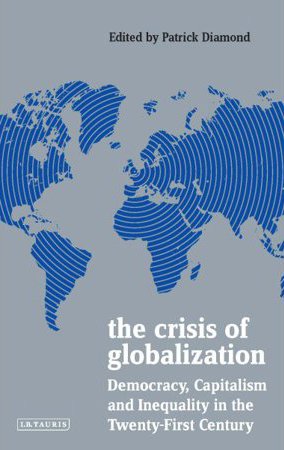
Policy Network announced recently a new book about the crisis of globalization going on nowadays.
In recent years, the effects of economic openness and technological change have fuelled dissatisfaction with established political systems and led to new forms of political populism that exploit the economic and political resentment created by globalization.
This shift in politics was evident in the decision by UK voters to leave the European Union in June 2016, the November 2016 election of Donald Trump to the presidency of the United States, as well as the rise of populist movements on left and right throughout much of Europe. To many voters, the economy appears to be broken. Conventional politics is failing. Parties of the right and left and centre-left have struggled to forge a convincing response to this new phase of globalization in the aftermath of the 2008 crisis.
In a major new work edited by Patrick Diamond, a collection of leading thinkers examine thechallenges that the new era of globalization poses for progressive parties and movements across the world. It brings together leading thinkers and experts to debate the structural causes and political consequences of this new wave of globalization.
The book is divided in 3 parts. Part I, entitled “Taking Stock – the Rise of the New Populism” analysis the phenomenon of populism and its modern characteristics.
Part II, entitled Brexit, Populism and the Future of the European Union, focuses on Brexit and the future of European Union.
Part III is a chapter dedicated to Policy. Entitled “What is to be Done? Domestic and International Policies to Deal with Globalisation.”

Some highlights from the book include a view from Spain, one of the very few places where social democrats have recently been re-elected. In a chapter written by Manuel de la Rocha, the author asks how social democratic parties in government deal with the consequences of globalization. In many other parts of Europe the centre left is failing to convince electorates. Andrew Gamble questions how in the last ten years there has been a marked rise in various forms of populism in Western democracies, and how this relates to an evermore globalized world.
Is there a link between globalization and European integration? Loukas Tsoukalis examines whether Brexit was really the result of a popular/populist revolt against globalization, and considers if the UK is showing the way out for other countries (or is just a unique event). Looking to how these attitudes exist in the rest of Europe, Silvia Merler takes a look at attitudes across the continent and asks: does the EU square the circle?
The book was edited by Patrick Diammond, who worked as a policy advisor under the Labour Party government of the United Kingdom in a role covering policy and strategy. He is Senior Lecturer in Public Policy at Queen Mary University of London, Chair of the think-tank Policy Network, Gwilym Gibbon Fellow at Nuffield College, Oxford, and a Visiting Fellow in the Department of Politics at the University of Oxford.
The whole book can be acquired here.

Founder Dinis Guarda
IntelligentHQ Your New Business Network.
IntelligentHQ is a Business network and an expert source for finance, capital markets and intelligence for thousands of global business professionals, startups, and companies.
We exist at the point of intersection between technology, social media, finance and innovation.
IntelligentHQ leverages innovation and scale of social digital technology, analytics, news, and distribution to create an unparalleled, full digital medium and social business networks spectrum.
IntelligentHQ is working hard, to become a trusted, and indispensable source of business news and analytics, within financial services and its associated supply chains and ecosystems




























